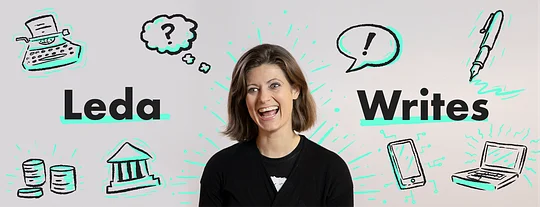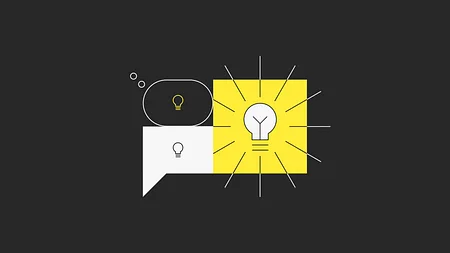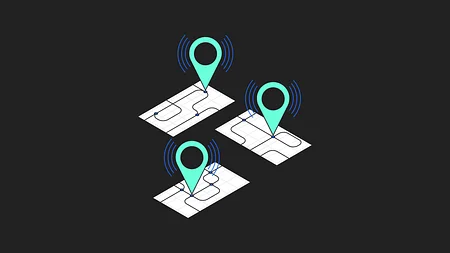Leda Writes for Fintech Futures: the stress of being stressed

Each week, Leda Glyptis, CEO of 11:FS Foundry, creates #LedaWrites. This week she ponders the difference between stress, and pressure - and the importance of acknowledging that stress without indulging it.
This article first appeared on Fintech Futures.
These COVID times come with their own set of conversations, don’t they?
We are getting a little bit better at telling the truth when people ask “how are you” at the beginning of a Zoom call. The perfunctory “yeah, good… busy… you?” replaced with a more real answer.
“Good days and bad.”
“Not so great.”
“Struggling a bit today.”
“Safe but restless.”
And the common themes of stress.
As the weeks turn into months, working from home is getting harder.
For folks in small spaces it is like living in the office: only a slightly worse version, with no friends, supply cupboards nobody is restocking and no air-conditioning.
Everyone is finding it hard to recharge, in the absence of any external stimulus, be it art, travel, other humans, random conversations, motion.
For those living alone, it’s the stress of unbroken hours of silence. And no, virtual pub is not a thing that helps.
For those living with partners and families, it’s the stress of constant proximity and anxiety for each other’s well-being.
For everyone, it’s the stress of not knowing what will come next. Or when. The certainty of an economic downturn and things at work being tense, whatever happens.
That also seems to be a universal theme.
Work is difficult.
The difficulty about a someone or a something creating added pressure is that, before you know it, you start managing the stress factor as a primary concern.
Everyone is under pressure. Personally as well as at the company level.
The impact is real and set to continue.
Start-ups are looking at their runway. Corporates are looking at their quarterly returns.
Cuts are considered or already in motion. Plans re-thought. Things won’t get done. Targets won’t get met. And just because we are all on the same boat, across companies, industries and geographies, doesn’t mean that this is in any way easier.
It is stressful. This is the stress everyone is dealing with.
Only. They are not. They are not dealing with the stress. They are dealing with the stress of being stressed. And that won’t get us far.
Under pressure
I am not a medical professional and I am not trying to make a compelling case about the strain the human body is under when dealing with stress. Others have done that exceptionally well and everyone in our industry is aware of what long-term stress does to one’s health. Mental and physical.
And we know that because we also know that we are an industry that operates under constant pressure and it tends to be bad for us in the long run. Still, we do it.
I am not suggesting for a moment we deal with the extreme pressure of a firefighter or surgeon, but rather a situation-agnostic constant pressure for performance, results, competition and a particular type of outcome.
That pressure is very often linked to why people have frayed nerves and stomach ulcers, grumpy demeanours and broken marriages but they are fundamentally thought of as separate and, for many, they kept apart.
A high pressure industry in crisis is a pressure cooker on the boil.
We just accept that we are axiomatically an industry of high performers operating under pressure.
It’s part of the deal.
You need to be aware of it when you come into this space and able to handle it.
So when people in our industry talk about stress they don’t actually mean the work. That comes under the pressure we are prepared for.
They invariably mean one of two things: someone is behaving in ways that are causing emotional anxiety on top of the usual pressure or something is happening that is tipping the balance from high pressure to insanity.
Sometimes that something is a deadline, a delay, a mistake. This time it is a pandemic.
More often than not the “someone” causing stress is a direct line manager.
I have not experienced stress like the Sunday night clenched stomach in jobs, over the years, when my boss was someone who caused me stress.
And I qualify that because we are not all the same.
I cannot handle volatility well.
People whose mood dictates your day, who are fine one moment and raging the next. Who react differently to the same thing on any given day cause me stress.
And I have had my fair share of bosses like that and it stressed me. It made the pressure of the work secondary to managing the volatility.
The difficulty about a someone or a something creating added pressure is that, before you know it, you start managing the stress factor as a primary concern. Your boss’ foibles and asks ahead of business imperatives. The crisis situation ahead of the good of the business.
They are not at odds. But the shift matters. As the focus moves to managing the stress factor, whatever minimises that factor soon becomes the desired outcome. And although your work doesn’t change, your depth perception does. The battles you pick do. The thing that becomes the most important thing does.
Why am I mentioning this.
Because we are under more pressure than ever.
A high pressure industry in crisis is a pressure cooker on the boil.
Results, outcomes and performance are more important than ever because a recession is looming. And everyone is working doubly hard. For themselves and their team, for their job and their clients. For their continued employment and the good of the company.
All of that is piling on pressure on what was already a high pressure situation.
And let’s face it. A pandemic and impending recession is exactly the kind of “something” that propels pressure into stress.
And of course, applying pressure is how you learn what metals can withstand. And what people are made of.
And man have we seen what people are made of in these unprecedented times.
Damage limitation is the mode everyone seems to have gone into. But it is not the only way.
From thoughtful kindness and equanimity to frayed nerves and fragile tempers. We’ve seen it all.
We’ve seen people seek comfort in short-termism that parcels the world into manageable chunks. We have seen people become selfish. We have seen people let each other down.
We have seen a proliferation of exactly the kind of ‘someone’ whose behaviour causes emotional anxiety.
Big decisions need to be made in the face of adversity.
How people in power feel and behave sets the tone for the rest of their organisation.
Are they seeking a path into a viable future or are they seeking scapegoats for what isn’t available any more? Are they doubling down on the things that matter or focusing on the things that matter to them? Are they open and transparent or secretive, ambushing their people constantly with unexpected curveballs and moving goalposts?
Are they under pressure or are they stressed?
And yes they are human. Of course they are.
Only those kinds of behaviour, in this kind of situation create an explosive cocktail of stress in people dealing with their stressed bosses dealing with a stressful situation and each other’s stress. So people and organisations are spending immense amounts of effort managing the stress of being stressed about each other’s stress.
Now better folks than I have talked about the mental health impact of this whole thing.
That’s not where I am going with this.
The cartoon character Mafalda walks up to her friend Felipe who looks wretched.
“What’s up,” she asks?
“My mum asked me to go do some shopping for her,” he says. “Only I didn’t because I wanted to read my comics. But I didn’t enjoy the comics because I was stressed about doing the shopping.”
“So,” asks Mafalda, “why don’t you go do the shopping and then enjoy the comics?”
“Too late for that,” says Felipe. “I have ruined the comic-reading experience. The shop is shut. So I might as well enjoy the stress.”
It’s not funny. Because it’s true.
Feel the fear when you face the unknown, only a fool wouldn’t.
The stress is not just damaging the health of so many of us. It is also damaging the health of our organisations but, worst of all, it is squandering precious time while “the shops are still open” and choices can be made.
Damage limitation is the mode everyone seems to have gone into. But it is not the only way.
Managing effort in line with known constraints to achieve desired outcomes is what we are good at in this industry. It is the pressure we are used to. This should have been our moment to shine.
Sure re-plan. Make your hard decisions.
But make them for a cause and with a reason.
Make them on purpose and with purpose.
Not to mitigate your own stress and try and make the world tomorrow look a little more like the world yesterday, but to build a bridge to an intentional tomorrow. To the thing you want to achieve. And build and be.
While the shops are still open, and the comic-reading hasn’t been spoiled.
Because if anything has been learned from Felipe, from our years of stressful bosses and stressful deadlines on top of the usual pressure; if anything has been learned from the last few months is that the stress is nothing to be enjoyed. And the more we accept it as inevitable, the more it multiplies. And the more we focus on dealing with the stress of being stressed by seeking comfort in small things, we make the world smaller. Wrapped around people’s egos and fears, the worst of themselves setting the tone and targets and mission for everyone around them.
This is a difficult situation.
The pressure is immense.
Feel the fear when you face the unknown, only a fool wouldn’t.
But if you look out into the future, see uncertainty and decide to manage it by indulging in how it makes you feel, not only are you acting the fool but you are dooming yourself and your organisation to stay put, in a place of ever-increasing stress.
Sure targets will be missed.
Yes costs have to be balanced.
But this is not the time to endlessly look at spreadsheets in the hope that one of them will make you feel better.
This is the time to handle the pressure, not indulge in the stress.


